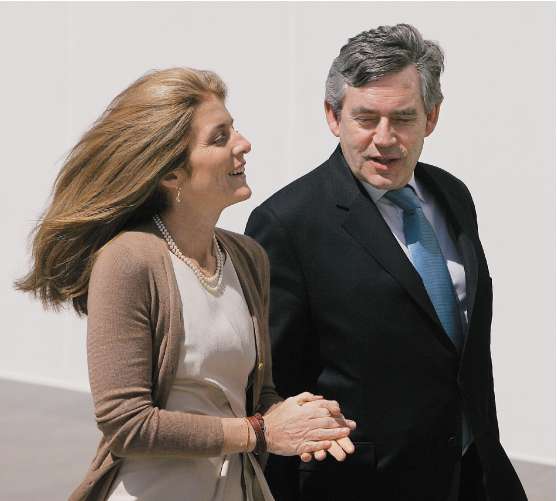'The strong are just': Brown invokes JFK in his vision of a united world

Gordon Brown has called for a "global covenant" in collaborative action between Europe and America in a keynote speech in Boston. Using a lecture at the John F Kennedy presidential library, where he was introduced by Senator Ted Kennedy, the Prime Minister warned of the "terrifying risks" of failing to respond to the need for global co-operation.
The Prime Minister link-ed yesterday's arrest of a terrorist suspect in Britain with his theme, saying ac-tion was needed across the world to tackle groups using the internet to plan attacks.
Behind the scenes, Mr Brown vented anger at the way his trip has been undermined by disloyalty at home. He had to take time at the White House to persuade Angela Smith not to resign from a junior Treasury post in protest at the abolition of the 10p tax rate.
Brushing aside questions about his mental state, denying he was depressed, he said he felt frustrated that he had not been able to get his message across because of the failure of some ministers to fully explain policy over tax changes he introduced a year ago.
In a vision of the new global village, Mr Brown spoke of a "new dawn" of collaboration between Europe and the next US president.
"I believe all European leaders can work with America to forge stronger transatlantic links. I sense common ground between our two great continents in the urgent need for renewal and reform," he said.
Governments needed to co-operate to respond to challenges posed by the internet. He spoke of "tantalising possibilities" where "as John Kennedy put it, the strong are just, the weak secure and the peace preserved are matched only by the terrifying risks of us failing to seize this moment". He said: "We have the opportunity to come together around a global covenant and build the truly global society. My call is not just to this generation but to the idealism of this and the next generation."
Mr Brown contrasted the threats faced by Kennedy from global communism with the new challenges posed by small groups and individuals via the internet.
"While in President Ken-nedy's time, foreign relations were founded almost exclusively on the relative power of governments, today we must recognise the relevance to foreign policy of what we see before our eyes," he warned. This included individuals harnessing "people power to transcend states – for good and sometimes ill" and that military forces and environmental policing had to cross borders to be effective.
At the core of his speech was a strongly socialist – some would say centralising – vision of world bodies being harnessed for global good. The UN, World Bank and the International Monetary Fund could become powerful forces, he said, for good, if they were radically reformed. He also claimed that new leaderships across Europe had made it possible for Europe and the US to unite in world action.
This was a theme he repeated to the presidential candidates Barack Obama, Hilary Clinton and John McCain before his joint press conference with President George Bush. He felt sure the next president would endorse a new deal with Europe and said he could convince him or her that education and training at home could provide jobs in the global economy.
His lecture set out a need for greater transparency to restore confidence in the global banking system. He held talks with the head of the Federal Reserve, Ben Bernanke, about measures to tackle the credit crunch which has seen a downturn in world economies – evidence, said Mr Brown, of a need to heed his warning for global co-operation.
Even at the airport, PM is in the Pope's shadow
Pope Benedict XVl overshadowed Gordon Brown's American journey even as the two men bade farewell.
The Pope flew from Andrews Air Force Base, seen off by an adoring crowd. Shortly afterwards, Mr Brown also departed, but the Prime Minister was barely noticed.
The Pope's motorcade had swept up to the aircraft steps as ranks of US military personnel clicked to attention. Atop the steps, he stood by the door of Good Shepherd 1, his Alitalia airliner, and offered a double-arm wave to the crowd on a platform erected for his supporters.
The crowd had gone by the time Mr Brown arrived. His flight to Heathrow was on a jet owned by a cut-price charter company called Titan. It was decorated with a big, orange ball.
All week long, Mr Brown's progress had suffered by comparison. The pontiff held Mass at the Nationals' stadium in Washington with live coverage on coast-to-coast television. Mr Brown had a low-key press conference at the White House with George Bush.
The Washington Post devoted four pages to the pontiff's mass, including his apology for the sex-abuse victims of Roman Catholic clergy. Mr Brown was not deemed to merit a place on the front page, although the South Korean President did, along with Benedict.
Even the Bush-Brown press conference in the Rose Garden suffered. From afar came the wail of sirens from the Pope's motorcade as he left the stadium after Mass.
Join our commenting forum
Join thought-provoking conversations, follow other Independent readers and see their replies
Comments